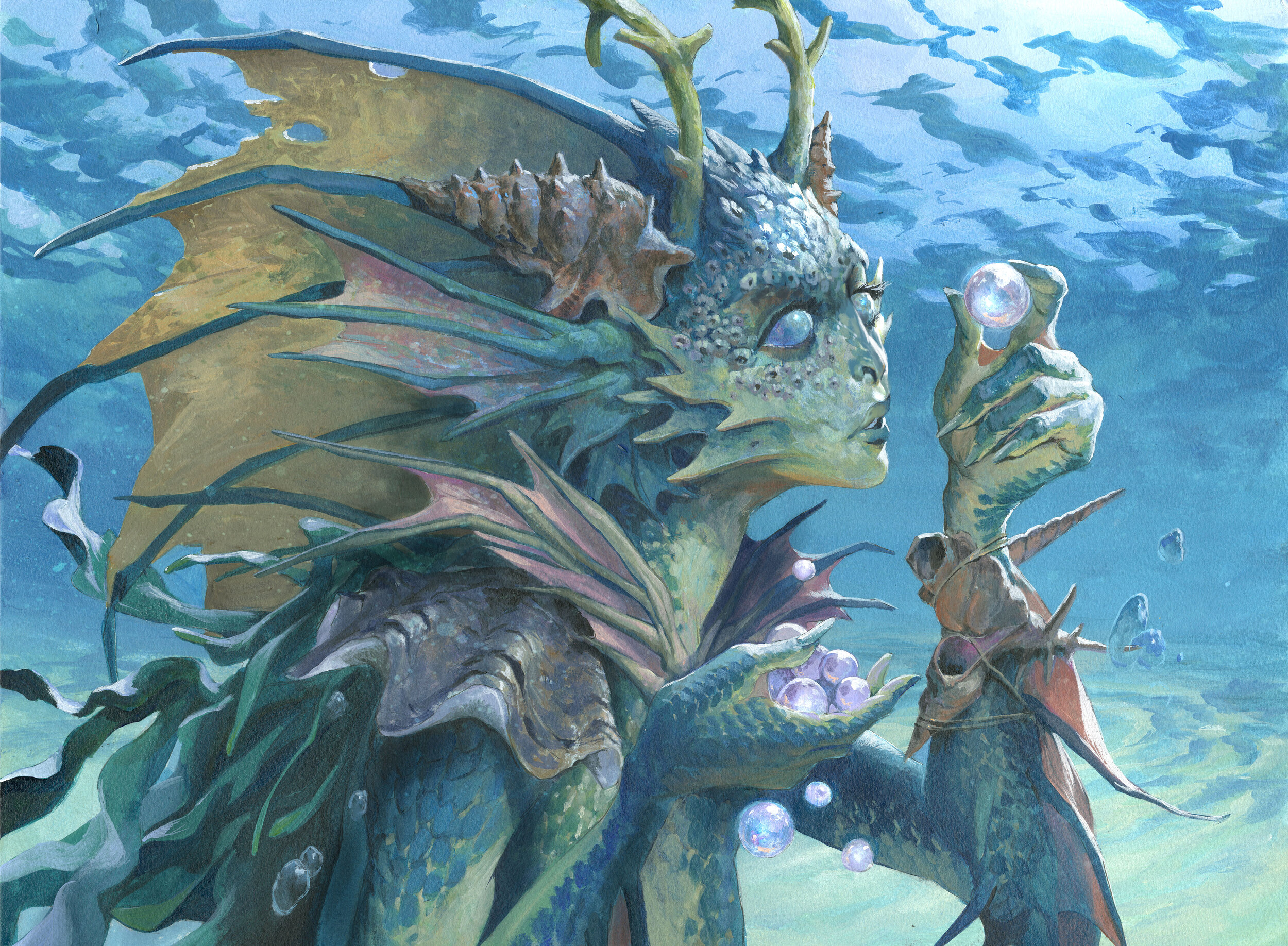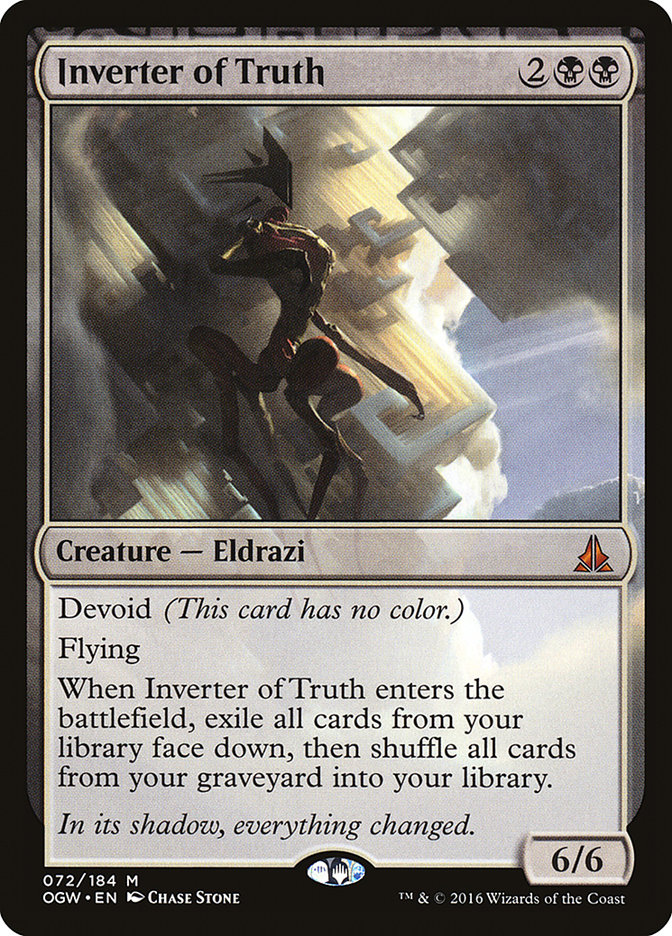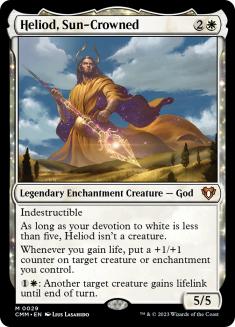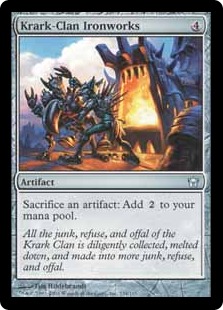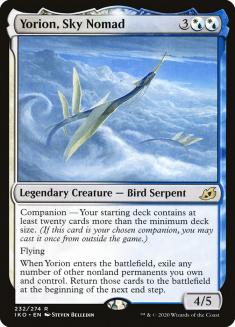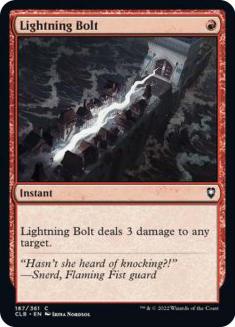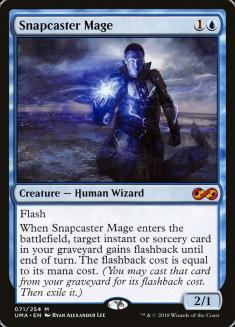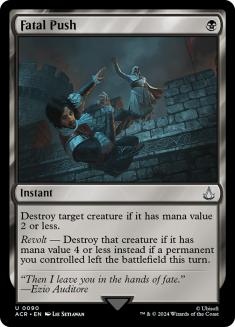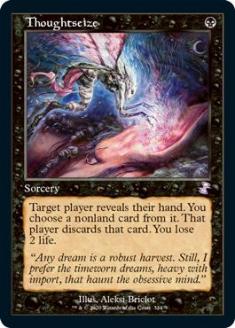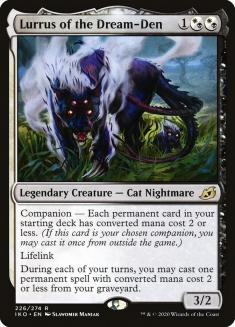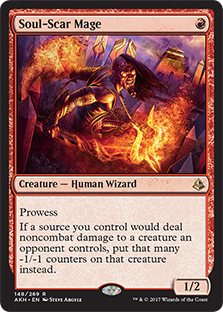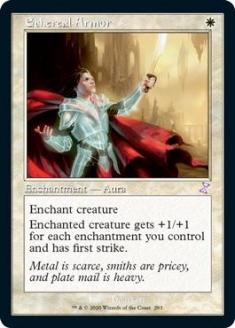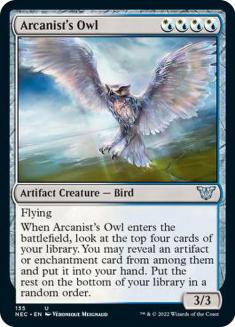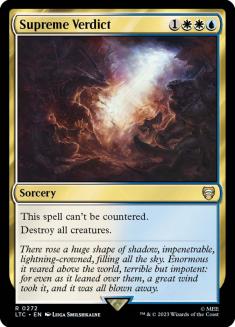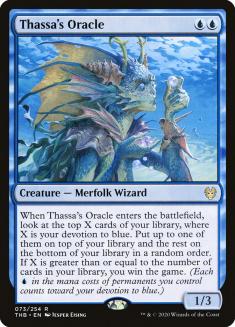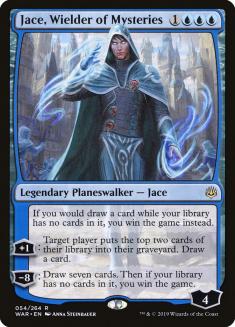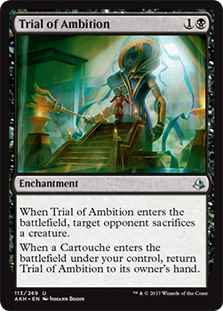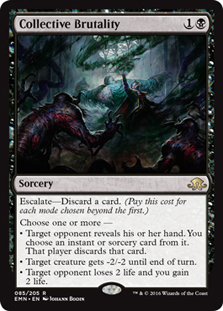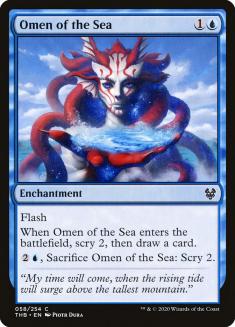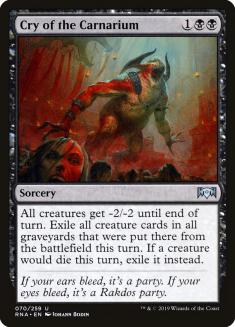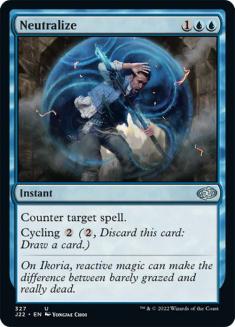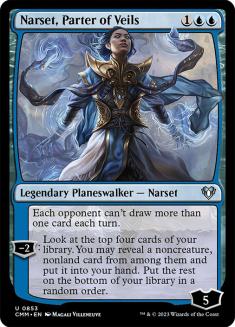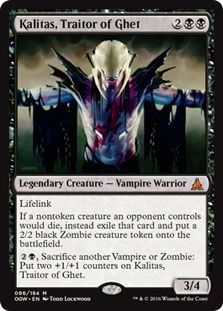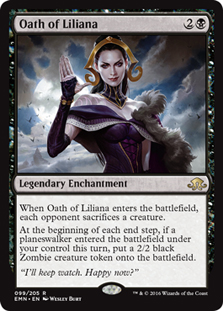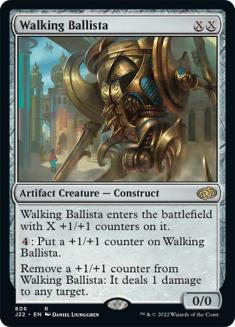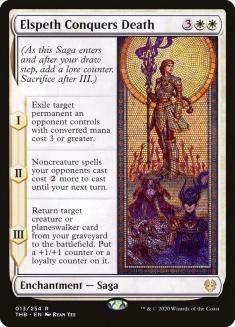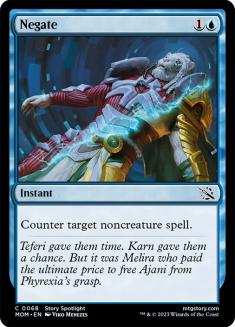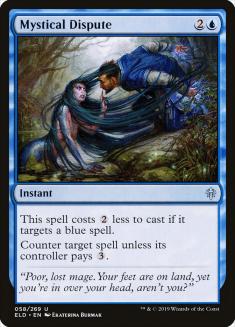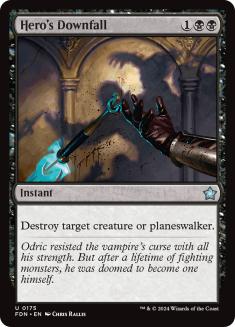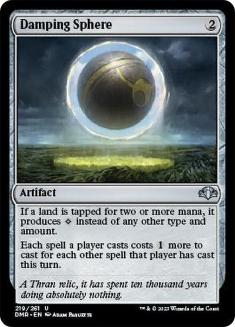The ebb and flow of the metagame in a given format can be the most confusing thing.
For example, Inverter of Truth combo decks have just been a level above the rest of Pioneer for months now, but people seem to have collectively…just stopped playing them.
This is in part to the surge of midrange decks in the format, as well as Lurrus of the Dream-Den-fueled aggro decks a la Boros Burn and Orzhov Auras. Both of these can be unfavorable for Inverter variants, but we all know that isn’t the only thing that can determine a deck’s value in a format.
When Ironworks was the best deck in Modern, it was still a level ahead of the rest of the field, despite having tough matchups against Five-Color Humans and Bant Spirits.
That’s because in wide-open non-rotating formats, raw power is worth more than a favorable heads-up matchup. Beating lesser decks on the back of a stronger base game isn’t difficult, so the subgame in deckbuilding shifts to tuning for unfavorable matchups.
A flexible combo deck like Inverter is the exact kind of place where Yorion, Sky Nomad’s drawback is actually upside:
Creatures (8)
Planeswalkers (7)
Lands (26)
Spells (39)

Yorion Dimir Inverter is simply the next step in evolving the Inverter of Truth combo shell, with the primary incentive being that it gives more space to tune.
Yorion necessitating an extra twenty cards creates an interesting question: should the twenty cards consist of pieces that lean into comboing or interaction?
In my first article about Inverter Combo, I detailed the similarities between the deck and Splinter Twin. To summarize it here, the key strength of Splinter Twin, and Inverter Combo, was the ability to morph into a fairer deck when the combo wasn’t good and lean into the combo when necessary. Yorion Dimir Inverter is simply an iteration of the deck that’s leaning more into the grindy aspect than traditional Inverter combo.
What allowed these two decks to morph was that they more or less had the best interactive cards in the format available to them, and could lean into those effects when they were better than the combo.
Leaning into the combo with an 80-card deck would mean one of two things: more filtering or more combo pieces. Without more copies of Inverter of Truth or Laboratory Maniac effects to add to the deck, the latter isn’t really doable.
This tells us that in metagames where comboing is going to be more important than playing an interactive game, like a combo-heavy metagame, a traditional Inverter deck is going to be better. Now?
Aggro and control-slanted midrange are everywhere. This increases the stock of the control game that Inverter has available to it.
Against the aggressive strategies of the format, it’s harder to justify spinning one’s wheels on Omen of the Sea and the like. You’ll just die while assembling the combo.
Against the slower decks, a wall of Thoughtseize and card advantage will be enough to eventually bury the opponent. Hoping to slam an early Inverter and have it be good enough is risky against these decks, as the combo does effectively put its controller on the brink of death.
Sometimes you cast an early Inverter and it resolves, only to have the Oracle or Jace get countered, or have Gideon of the Trials make an emblem, or have Jace suffer a Hero’s Downfall, or…
You get the idea.
This squeeze creates an incentive structure to minimize wheel-spinning, and maximize on-battlefield interaction. The extra cards in the deck reflect a concession to aggro and a nod to the impact that Yorion has on specific card choices.
Almost every card that’s been added to the deck is meant to maintain what’s on the battlefield or play catch-up. Omen of the Sea is the only real exception here, and that’s because it creates an incredible Yorion package with Trial of Ambition.
Matchup Guide
VS Lurrus Boros Burn
Out:
In:
Collective Brutality is the hammer that it’s always been against Burn variants, and it’s particularly nice here. After all, there’s always a Nightmare Cat that dies to a -2/-2.
Kalitas is perfectly serviceable in this matchup but isn’t something I’d consider a hate card. It’s something closer to a nail in the coffin of a game that was otherwise tight; providing a draw step’s worth of life each time it deals combat damage is no joke. It’ll generally be better to try to pave the way for a Kalitas, rather than jam it on Turn 4 only to have it trade for a Wild Slash and a Lightning Strike.
Sideboarding in a good number of the aggro matchups will come down to removing cards that aren’t playing to the battlefield and adding cards that do. Narset and Thoughtseize are gimmes, but don’t be afraid to trim Jace as well.
VS Yorion White Devotion
Out:
In:
This is likely the single most-improved matchup by the shift to a Yorion build. It’s entirely thanks to an improved ability to grind while assembling a combo. Previously, White Devotion variants had an edge on the fact that they could play a handful of hate cards while applying pressure. This lined up fantastically against Inverter’s plan of “hope a Thoughtseize and a couple of removal spells are enough interaction to bridge to the combo.” The texture of the matchup leaned on the fact that White Devotion threatened its own combo:
Now the deck has the ability to be something closer to a true control deck, which a more midrange-y archetype like White Devotion will struggle against. The deck’s ability to grind through almost anything is on the back of these cards:
A large struggle that Dimir Inverter faced against White Devotion was that White Devotion both necessitated cheap removal and had the ability to blank it (sound familiar?). This created a squeeze where it was difficult for Inverter to have both the resources necessary to combo and ways to actually navigate to a point where comboing was possible.
Yorion turning all of the Edict enchantments into one-sided Barter in Bloods creates enough removal to check the creature plan that White Devotion presents while allowing the Inverter player to save Fatal Pushes for Walking Ballista.
If the opponent is heavy on Elspeth Conquers Death or other big, clunky cards, you could also look at cutting some number of Collective Brutality for Mystical Dispute or Negate. Look to the latter if the opponent is high on the Gideon tribal strategy.
VS Yorion Dimir Inverter
Out:
In:
This is a matchup where the sideboard in its current configuration is a bit short, but there are enough serviceable cards to get the unplayables out of the maindeck. Collective Brutality is a tough one, but I tend to fire it off as quickly as possible. The deck doesn’t have infinite hits for the Duress mode, and nabbing Mystical Disputes and Neutralizes is a good use of the card.
If Yorion Dimir Inverter sees play in greater numbers, I’d end up finding room in the sideboard for a couple of Ashiok, Nightmare Muses and cut a couple of Fatal Pushes when bringing them in.
The gameplay of the mirror is interesting in that a combo usually literally ends the game, yet doesn’t decide it. It’s a control mirror centered around its planeswalkers, where combo pieces are best drawn late. This means drawing early Thassa’s Oracle is awful, but Jaces are fine.
With all of the extra wheel-spinning that this deck does and the strange targeting that Jace, Wielder of Mysteries can create, Yorion Dimir Inverter casts more “fair” Inverter of Truths than any previous version of the deck.
The mirror is one of the places where it can end up being reasonable to simply have a ten- to fifteen-card library full of gas and payoff cards. Despite playing a controlling game, Dimir Inverter variants don’t actually have a high density of answers like a traditional control deck. This means that creating a subgame in which you’re 70%+ to draw a haymaker is actually a fine place to be.
VS Lotus Breach
Out:
In:
This deck is not configured to play against combo but that doesn’t mean it can’t. If the opponent doesn’t reveal a companion during Game 1, my best advice is to assume they’re on Lotus Breach and realize that your best avenue to victory is comboing as quickly as possible.
Kalitas is really only coming in because there’s a ton of removal in the sideboard to compensate for the number of creature-based decks running around at the moment. Removal is literally blank against Lotus Breach, and Kalitas technically has text, even if it’s mediocre.
I wouldn’t expect Lotus Breach to begin showing up in greater numbers, but the best way to respond to it if it does is to add another Damping Sphere to the sideboard, and then likely another piece of filtering to the maindeck to make comboing easier.
Historically, the matchup has been good for Inverter, so I wouldn’t lose too much sleep over it.
Customization
Tuning is the name of the game, and with Yorion headlining Dimir Inverter, there’s a ton of space to fix the deck to beat just about anything, the next step could end up being this Dimir Control deck from Logan Nettles:
It really just drives home how the Inverter of Truth combos are simply a means to an end, and a sound Fatal Push / Thoughtseize / Dig Through Time strategy is fantastic in Pioneer. Unsurprising that we’ve ended up at this point, given the resumes of each piece of the package.
As long as Yorion, Sky Nomad is Pioneer-legal, we’ll see grindy decks defaulting to finding ways to abuse it. The difference in power level between the worst and the best cards is minimal enough that having a five-drop 4/5 that draws a couple of cards for free is worth more than a few percentage points.
And in the matchups where the best cards are that much better? There’s the London Mulligan.

